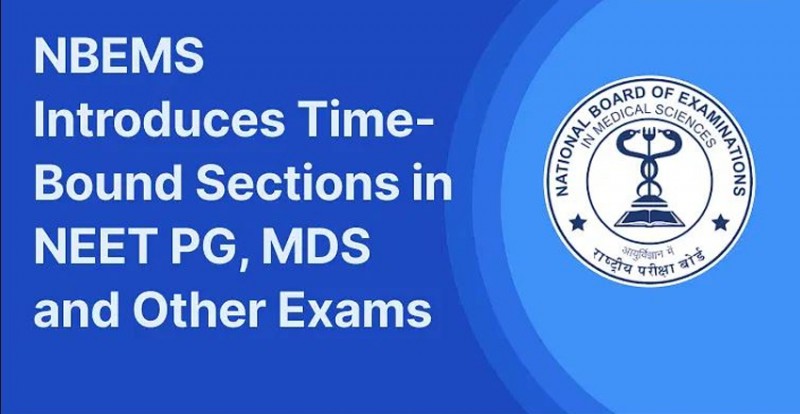
The introduction of time-bound sections in the NEET PG 2024 and other medical entrance exams by NBEMS has stirred up controversy. While it's intended to curb cheating and maintain the integrity of the exams, critics argue that it could unfairly disadvantage certain candidates.
Some experts compare this new pattern to international exams like the USMLE and AIIMS exams, suggesting that it aligns with global standards. However, concerns have been raised about the potential impact on candidates who prefer to shuffle between questions before submitting answers.
It seems like NBEMS is attempting to strike a balance between exam security and candidate convenience, but the effectiveness and fairness of this approach remain to be seen. It's essential for exam authorities to consider feedback from all stakeholders to ensure that the examination process remains transparent and equitable.
The decision to implement time-bound sections reflects the ongoing challenges in maintaining the integrity of high-stakes exams amidst technological advancements and evolving cheating methods. While it aims to address concerns about question paper leakage and cheating during exams, it also underscores the inherent tension between exam security and providing a fair and accessible testing environment for all candidates. As the medical community navigates these changes, it will be crucial to monitor the impact of the new exam format on candidates' performance and ensure that adequate support mechanisms are in place to assist those who may face challenges adapting to the revised structure. Ultimately, striking a balance between exam security and candidate welfare is paramount to upholding the credibility and fairness of medical entrance exams in India.
Tamil Nadu Class 12 Results Declared: 94.56% Students Pass
CBSE Announces Class 10 and 12 Result Dates: Find Out When!
NTA Ends NEET UG 2024 Correction Session Today